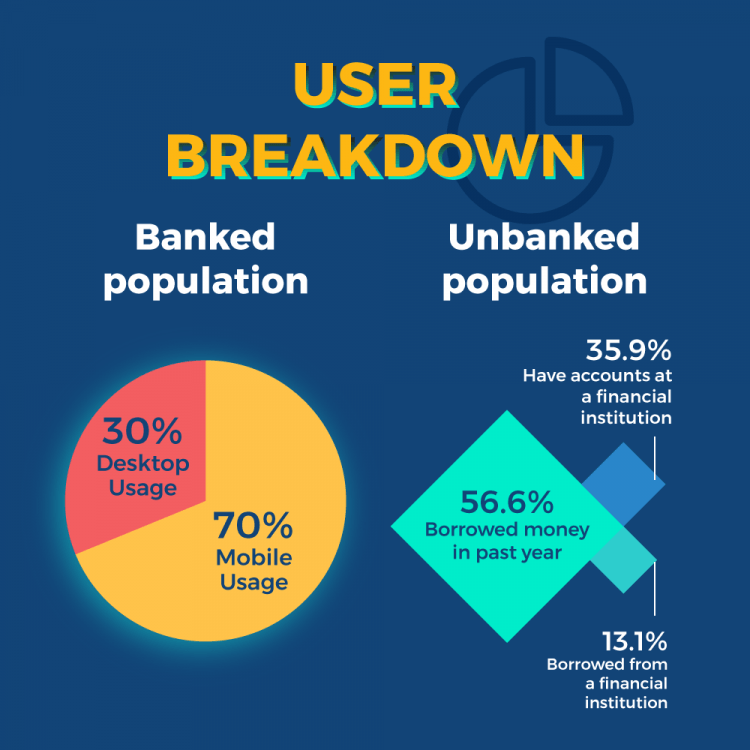While lending companies have been getting a bad rap in Latvia, when the Kuļikovskis brothers decided to enter the Indonesian market there was a real gap in the market between bank loans and black market loan sharks. With a population of over 250 million, banks can have just a fraction of the population as clients and already be successful. For most average citizens it's too far and too expensive to travel to a brick and mortar bank, but with the high level of mobile telephone penetration online P2P lending provides the perfect solution.
Untapped market
“We got to know the market through our commercial business, but still when we talked about P2P lending people said we are crazy - that we'll never get our money back,” says Jānis.
Latvia has a high level of know-how in IT, risk management and business. For Jānis' company their main asset was the algorithm for creating customer scorecards, or the mathematical model evaluating the risk involved in lending to a loan applicant. After a three-year learning process, the company is now fully operational. They are now even conducting tests using artificial intelligence.

Including the one in Indonesia, the company now has four offices around the world and over 100 employees. But the road wasn't short or easy.
“If you think it's too complicated to open a business in Latvia, you should try opening one in Indonesia! With all the bureaucracy it took us a whole year to get up and running,” says Jānis.
Regulators, banks and the Chinese
After they eventually got their business going, consumers weren't the only ones to take notice. As they were one of the first companies in the fintech industry to begin operations in Indonesia, they attracted the interest of the national financial regulators.
“They were interested in our business model, and they wanted advice on what would be required to ensure transparency,” said Jānis. The regulators eventually created a separate Fintech Association.
“It was interesting, even in the beginning when there weren't regulations, we came in and conducted operations according to European business ethics,” says Jānis.
The banks were also very interested in the company's technology. They have more capital than they can lend out, so they are interested in working together with a fintech company facilitate lending. “They are dealing with millions, but there is potential to deal with 100s of millions,” says Jānis.
“Indonesia already has much more advanced ATMs than Latvia, but they don't have the same lending business models.”
Alfa Fintech Indonesia works by taking money from individual investors, mostly from such European countries like Spain and Germany, and lending it out in Indonesia. Because of the high level of scorecard technology they are even able to guarantee that they will buy back any bad loans from their investors.

Once Jānis' company had established a market, the Chinese companies were also quick to break into the market. “The Chinese companies are very aggressive, they are quick to jump in, but once they make a profit they are just as quick to leave the market,” says Jānis.
Next moves
There is a global trend impacting both Latvia and Indonesia, where people are increasingly turning away from banks and towards new fintech companies for solutions.
“People are starting to trust traditional banks less. Fintech companies can cause the sort of creative destruction necessary to accommodate today's global needs,” says Jānis.
One of the next products for Jānis' company is small business loans. A small and medium business in Indonesia, however, is on a completely different scale than in Latvia - anywhere from two to five thousand employees. “We've had a lot of success handing out loans to small and medium-sized businesses. We have found a way to enforce debt repayments by exploiting local business knowledge and its practices.” says Jānis.
As with many developing countries, Indonesia definitely isn't going to follow the Western development route when it comes to finances. Because there aren't already built-in institutions, it's easy for technology to leapfrog to a more advanced level. Jānis can't reveal specific plans, but the Indonesian financial market is already looking past plastic cards and towards electronic wallets, as there is very high mobile phone and internet penetration in the market.
As for Latvia, Jānis says we have to change our mindset and take a more global view.
“We did a few calculations, but we really did take a risk in entering the Indonesian market. It could have just as easily been any other company from Latvia, we just have to pull out a map and find our market niche,” says Jānis.
Alfa Fintech Indonesia currently has employees from Spain, the US, Poland, Mexico and Latvia. Predicted turnover for 2019 will be around 7,500,000 euros. The company has issued 240,000 loans with capital from 1,500 investors.






























